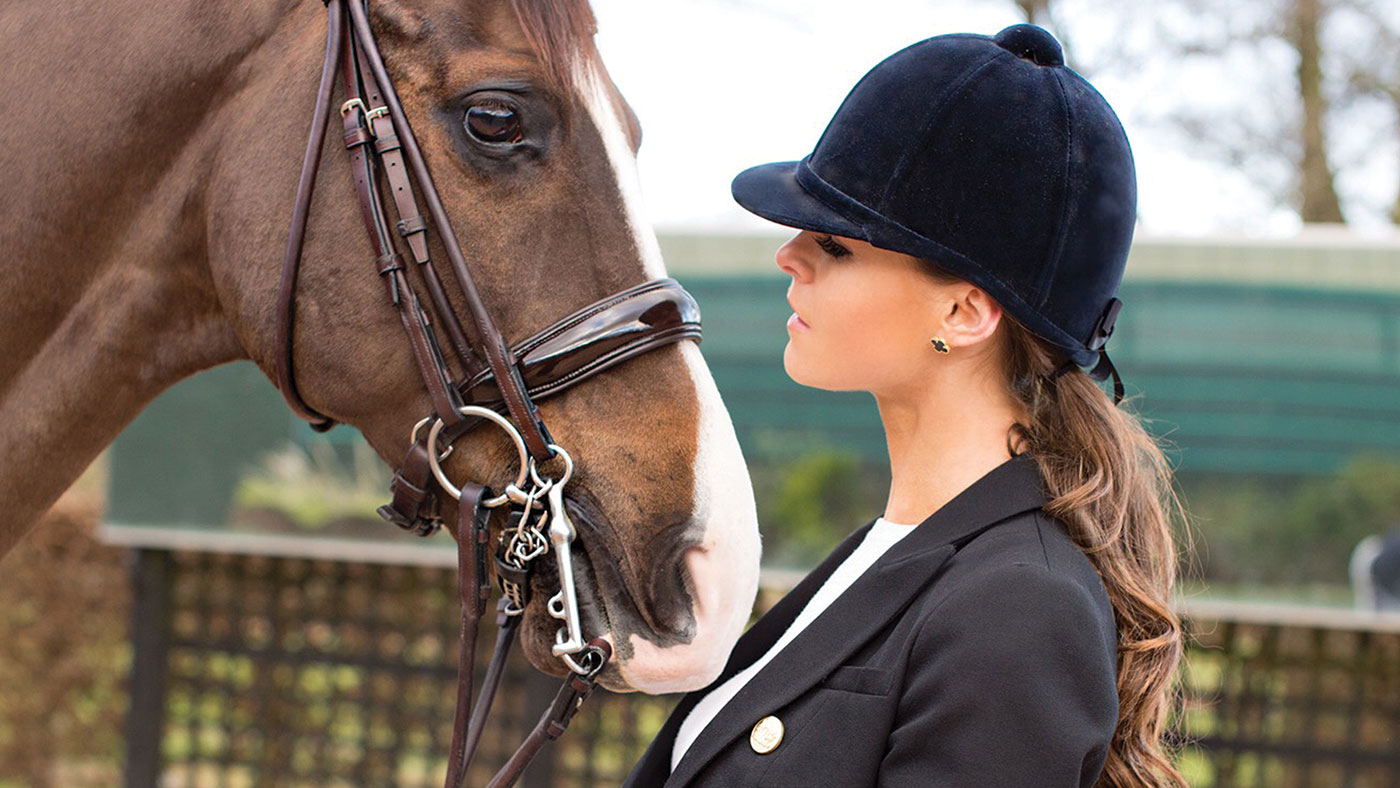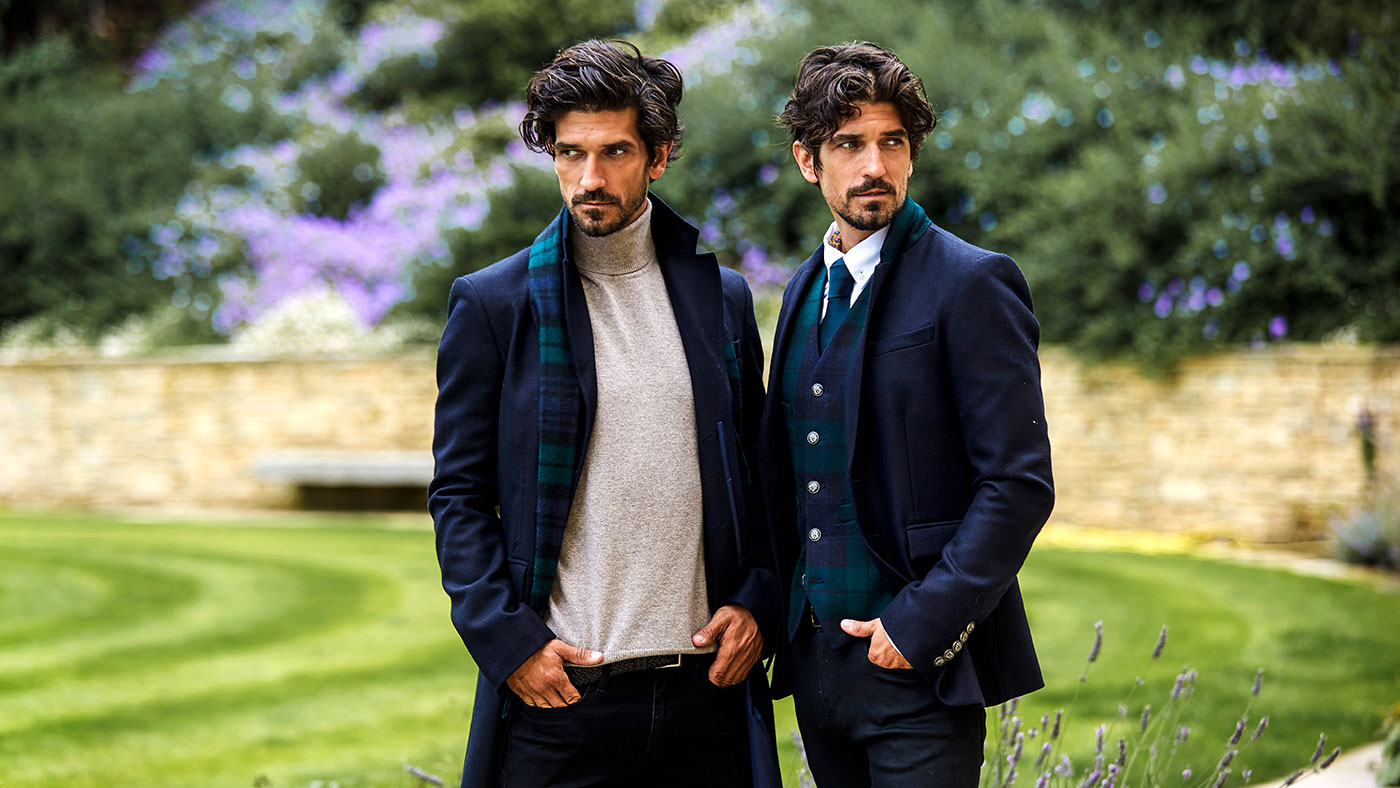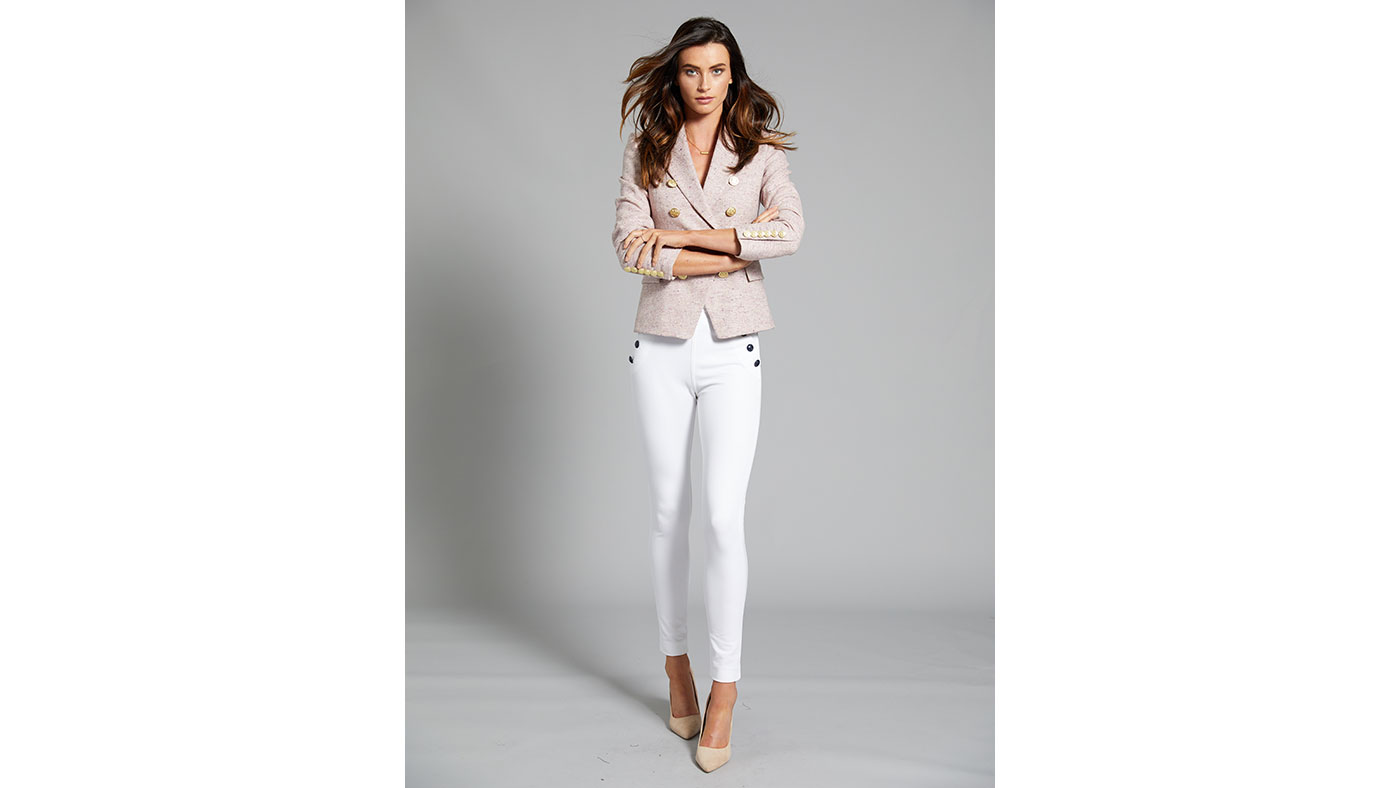Jade Holland Cooper on building a £10 million fashion brand
Peter Howarth talks to the businesswoman on how she turned a passion for country clothing into one of Britain's leading labels

A free daily email with the biggest news stories of the day – and the best features from TheWeek.com
You are now subscribed
Your newsletter sign-up was successful
When Jade Holland Cooper was seven years old, she started her first business. "It was selling eggs," she remembers. "I had 30 hens, and the other day I found my old notebook where I was listing variable costs and profit – I've always been quite commercially minded."
Today, the 31 year old has swapped eggs for clothes. But one suspects that there is still a notebook somewhere in which she scrutinises the accounts. Indeed, she reveals the best piece of advice she was given when she said she wanted to start a fashion company was from her father: "He said I had to make sure I combined creativity with knowing the numbers; so I learnt about the financials and now run the business strictly according to regular management accounts."
Holland Cooper's father is a farmer and her mother worked as a couturier in London and Paris. It is perhaps unsurprising that, with these dual influences, as a teenager she was torn between pursuing a place at fashion college and one at agricultural college. The Royal Agricultural College in Cirencester won out, but it didn’t take long for her to rethink.
The Week
Escape your echo chamber. Get the facts behind the news, plus analysis from multiple perspectives.

Sign up for The Week's Free Newsletters
From our morning news briefing to a weekly Good News Newsletter, get the best of The Week delivered directly to your inbox.
From our morning news briefing to a weekly Good News Newsletter, get the best of The Week delivered directly to your inbox.

"I was going to all these social events in the country," Holland Cooper explains. "I'm a country girl at heart – I grew up on an arable farm in Suffolk, after all. So, I'd travel around to the polo and horse trials, and everywhere I went I noticed there was a lack of stylish, fashionable clothing for women to wear at these sorts of places: clothes that had the flair of urban pieces, but with a countryside influence." She decided there was a gap she could fill and determined to have a go; she reasoned that if she ended up wanting to learn farming, she could do that at home with her father without the college time. She was 21.
"I was really young, I suppose, but I had this idea and I was convinced I could make it work," she explains. "And I am tenacious – like a dog with a bone once I make up my mind to do something. The hardest thing was persuading people to take me seriously and then having to hire and manage people who were often twice my age. But I soon showed that I knew what I was talking about and things quickly took off."

The principle behind the business is simple, she says. The town/country fashion divide is being broken down by widely available imagery on social media and online and the fact that now many people have places in both. "In Cheltenham, where I'm based now, this is so apparent," she explains. "We have great arts festivals and horseracing here, and there are good restaurants and shops. Many people live between here and London now, and they want sophisticated, elegant and stylish clothes that can work in both settings."
A look at the website (through which the label does 60% of its sales) shows how this philosophy has developed a modern take on classic country-influenced clothing for men and women. Scottish-tweed jackets stylishly cut to give a fashionable fit, waxed cotton capes that are as well suited to festivals as to the polo, skirts in houndstooth and brown Prince of Wales check that can do boardroom as well as outdoors, stylish short coats in camel and country check that are equally at home in the Cotswolds and Chelsea, as well as a wide range of accessories, including on-trend tweed baker boy caps.
A free daily email with the biggest news stories of the day – and the best features from TheWeek.com

Holland Cooper's hunch about the desire for this hybrid look was correct. In ten years, the firm has gone from being a 21-year-old's dream to a £10 million business, with two stores in the UK (and five new ones in development) and many others stocking its wares around the country and abroad, including Harrods, where it is the best-performing label on the 5th floor. Along the way, the founder has managed to build a successful relationship with a network of factories in the UK, and has championed British wool and tweed. This year alone she bought 80,000 metres of British tweed. The homegrown element of the business is something she is very proud of, as is the in-house apprentice scheme she has started for young people to get them into the fashion industry.
What advice, then, would this young entrepreneur give to others thinking about striking out on their own? "Do not be swayed from your vision," she says emphatically. "If you believe in yourself, be clear, understand your journey, your customer, and make sure the DNA of the brand is always there. Don't create products that your customer doesn't understand and doesn't want. Create for real people; don't just create product for the sake of it."
-
 How the FCC’s ‘equal time’ rule works
How the FCC’s ‘equal time’ rule worksIn the Spotlight The law is at the heart of the Colbert-CBS conflict
-
 What is the endgame in the DHS shutdown?
What is the endgame in the DHS shutdown?Today’s Big Question Democrats want to rein in ICE’s immigration crackdown
-
 ‘Poor time management isn’t just an inconvenience’
‘Poor time management isn’t just an inconvenience’Instant Opinion Opinion, comment and editorials of the day